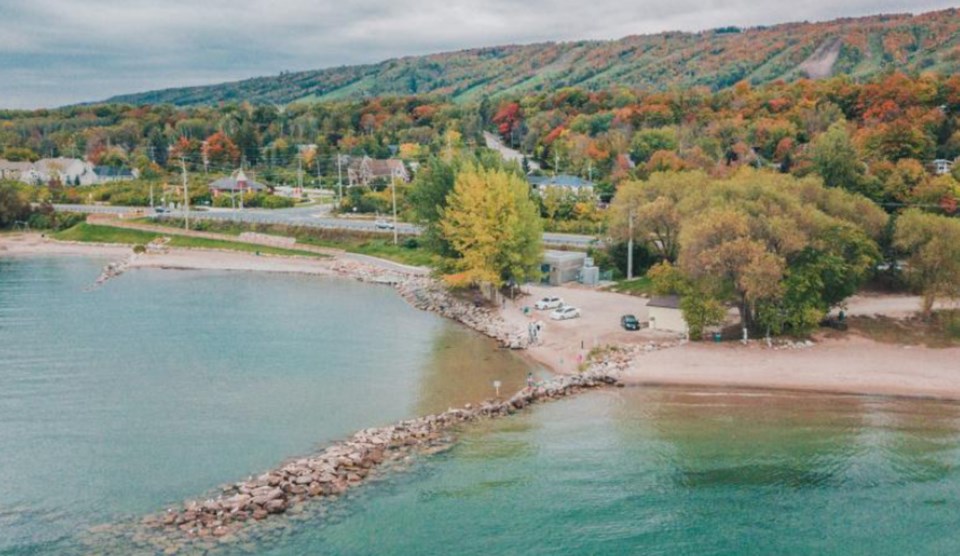The possibility of a new water treatment plant in Craigleith did not generate significant opposition from local residents at a public meeting about the concept this week.
On March 20, The Town of The Blue Mountains held a public information session to review options identified to increase water capacity in the eastern portion of the town. The preferred option identified in the environmental assessment process is a new water treatment plant in Craigleith that would also include a water storage facility and upgrades to the Thornbury water treatment plant.
The virtual meeting generated plenty of comments and questions from residents who attended.
With significant growth on the horizon – the report says the population in that area of town will be doubling over the next number of years – the town has been studying options to increase water capacity in the eastern area of the town.
“The intention of looking this far into the future is to make sure any decisions we make about infrastructure now are serving the community for 10, 20, 30 years into the future,” said project consultant Jane Wilson.
Although a new water treatment plant in Craigleith has been identified as the preferred option, three other alternatives were also examined in the study. Two possibilities were to expand the Thornbury water treatment plant and build water storage facilities in two different areas of the town and another would be to expand the amount of water the town receives from Collingwood with a water storage facility to be built near the Village at Blue.
“All of them do have the potential to address the challenges that were identified at the beginning of the project,” said Wilson.
Preliminary costs for the various alternatives ranged from $57 million to $66 million, which is the estimate for the preferred option.
“Each of the options have fairly similar capital costs associated with them,” said Wilson.
Public concerns raised during the information meeting included: the impact of runoff from area ski hills on water quality, the costs to operate a second water treatment plant, the location of the intake pipe off the shore of Craigleith and its possible proximity to the local provincial park and when water services would be available in certain areas of the town like Osler Bluff, Swiss Meadows and Castle Glen.
On the run off issue, Allison Kershaw, the town’s manager of water and wastewater services, said the intake pipe would be located away from the shore in deep water.
“The intake, I’m fairly certain, will be far enough out in the bay and at a depth that I don’t think it will be impacted by the runoff from the ski resorts,” she said, noting that the Thornbury plant’s intake pipe is half a kilometre offshore.
On the costs of operating a second plant, Kershaw said there would be additional costs, but said the two plants would have a high degree of staff integration.
“Running two plants will definitely have additional maintenance and operating costs, but it’s not like running two separate water systems,” she said.
On the exact location of the intake pipe and the provincial park, Kershaw and Wilson explained those precise details would be determined in the next phase of the project.
“There may be a route that crosses the provincial park,” said Wilson.
On the availability of expanded water services in various areas of the town, Kershaw said that would depend on how growth and development proceeds.
“It won’t be driven by the town, it will be driven by the developer,” she said.
The next phase of the project will move into the more detailed design portion and will require a number of studies including: geologic, hydrogeologic, archaeological and cultural. The town continues to gather public feedback on the project and comments can be submitted by visiting the project webpage here.



